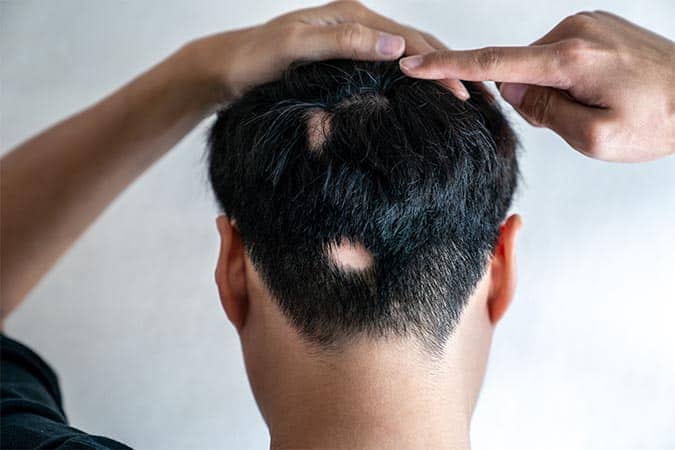Alopecia Treatment for Hair Loss: Comprehensive Solutions for All Types
Alopecia, a condition characterized by hair loss, affects millions of people worldwide. Whether it’s patchy bald spots, thinning hair, or complete baldness, alopecia can have a significant emotional and physical impact. Fortunately, there are a variety of treatments available that can help manage and even reverse hair loss caused by alopecia.
This guide explores the types of alopecia and the most effective treatments to help you regain confidence and promote hair regrowth.
What Is Alopecia?
Alopecia refers to hair loss and comes in several forms, including:
Do you want to visit Char Dham? Char Dham Travel Agent is the best place to plan your Char Dham tour. You can book the tour from here.
- Alopecia Areata: An autoimmune condition causing patchy hair loss on the scalp, face, and sometimes the body.
- Androgenetic Alopecia: Known as male or female pattern baldness, caused by genetics and hormonal factors.
- Traction Alopecia: Resulting from hairstyles that pull tightly on hair follicles.
- Telogen Effluvium: Temporary hair shedding due to stress, illness, or hormonal changes.
- Scarring Alopecia: A rare condition where inflammation destroys hair follicles, leading to permanent hair loss.
Understanding the type of alopecia is crucial for selecting the right treatment.
Alopecia Treatment Options
1. Topical Treatments
- Corticosteroids: Prescribed in cream or lotion form for alopecia areata, corticosteroids reduce inflammation and suppress the immune response attacking hair follicles.
- Minoxidil (Rogaine): Stimulates hair regrowth by improving blood flow to the scalp, effective for androgenetic alopecia.
- Anthralin: A topical medication used to treat alopecia areata, encouraging hair follicles to enter the growth phase.
2. Oral Medications
- Corticosteroids: In cases of severe alopecia areata, oral corticosteroids can reduce immune system activity, promoting regrowth.
- JAK Inhibitors (e.g., Tofacitinib): Emerging as a promising treatment for alopecia areata by targeting specific immune pathways.
- Finasteride (Propecia): Blocks DHT, a hormone that causes hair loss in androgenetic alopecia, suitable for men.
- Spironolactone: Prescribed for women with androgenetic alopecia to block androgen hormones.
3. Injections
- Corticosteroid Injections: Administered directly into bald patches for alopecia areata, they reduce inflammation and stimulate regrowth.
- PRP Therapy (Platelet-Rich Plasma): A natural treatment where your plasma is injected into the scalp to promote healing and stimulate hair follicles.
4. Advanced Therapies
- Hair Transplant Surgery: Suitable for androgenetic alopecia, where hair is moved from thicker areas to balding spots.
- Low-Level Laser Therapy (LLLT): A non-invasive treatment that uses light to stimulate hair follicles and increase growth.
- Microneedling: Enhances absorption of topical medications and boosts hair follicle activity.
5. Lifestyle and Natural Remedies
- Scalp Care: Regular scalp massages with natural oils like rosemary or peppermint oil can improve circulation.
- Stress Management: Practices like yoga, meditation, and mindfulness can reduce stress-induced alopecia.
- Diet and Supplements: Include biotin, iron, zinc, and Vitamin D in your diet to support hair growth.
Specialized Treatments for Different Types of Alopecia
Alopecia Areata
- Immunotherapy: Topical agents like diphencyprone (DPCP) trigger an allergic reaction that may stimulate hair regrowth.
- JAK Inhibitors: Oral medications like baricitinib show promising results in reversing hair loss.
Androgenetic Alopecia
- DHT Blockers: Oral and topical DHT inhibitors, like finasteride, are highly effective.
- Hair Growth Serums: Products containing saw palmetto or caffeine can support hair health.
Traction Alopecia
- Protective Hairstyles: Avoid tight hairstyles and switch to loose, natural styles.
- Scalp Treatments: Moisturize and repair damaged hair follicles with aloe vera or coconut oil.
Scarring Alopecia
- Anti-inflammatory Drugs: Medications like hydroxychloroquine can reduce inflammation and slow progression.
- Surgical Solutions: In cases where scarring is extensive, scalp reduction surgery may be an option.
When to See a Doctor
If you notice sudden or excessive hair loss, consult a dermatologist or trichologist. Early intervention can prevent further hair loss and improve treatment outcomes.
Conclusion
While alopecia can be distressing, the variety of treatments available today offer hope and tangible solutions. Whether you choose medications, advanced therapies, or lifestyle changes, the key is consistency and early action.
Would you like to visit Indiar? A tour operator in India is the best place to plan your tour. You can book a tour from here.
Remember, a consultation with a specialist will help determine the best approach for your specific type of alopecia.







